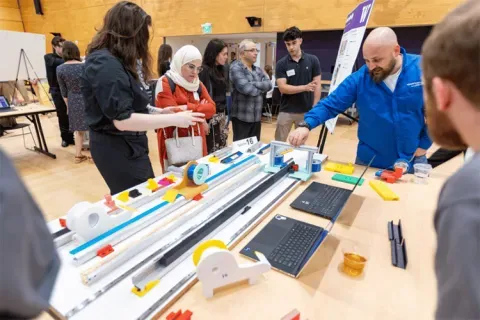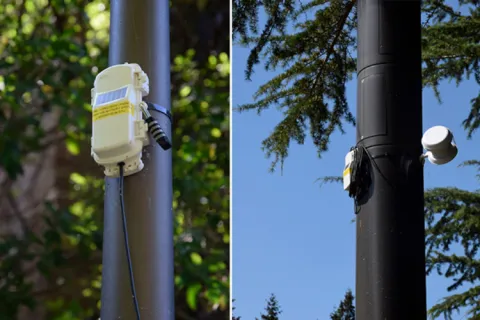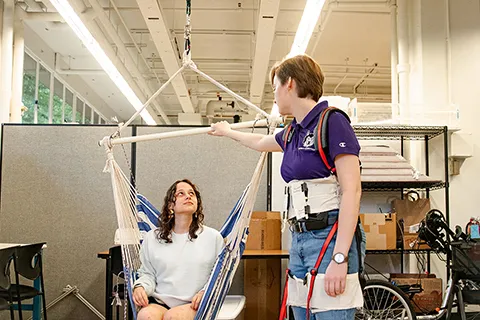PACCAR
Battery Electric Vehicle (BEV) Range Estimation Tool
With multiple new battery electric powertrains under development, there is a need to optimize component sizing and select the right configuration for different real-world vehicle applications. The goal of this project was to include the different components of a BEV powertrain and a generic optimization algorithm to determine required component sizing such as batteries, e-motors, etc. In prior years, an algorithm was determined to help estimate energy consumption based off a drive cycle. This year, the student team worked to design a user interface tool that would help determine the best component sizing for an application and is capable of optimizing the vehicle configuration based on user inputs and variables (i.e., battery sizing for a given drive cycle, vehicle weight and mass, and motor size). This tool was intended to evaluate and optimize powertrain configuration based on a different drive cycles and performance requirements. The student team was expected to prioritize GUI over adding complexity to the model. The model could have been updated from the previous project, or be used as-is, depending on time available and the skill set/interests of the group. Due to the large number of variables, optimization algorithms / machine learning were required to reduce computational costs.
Faculty Adviser(s)
David Laning, Electrical & Computer Engineering
Related News

Mon, 10/13/2025 | UW Mechanical Engineering
Capstone collaboration leads to award
An ME capstone team received first place for its energy audit of the UW School of Social Work building.

Mon, 07/07/2025 | UW Mechanical Engineering
Capstone creations
Students displayed innovative capstone design projects at the 2025 expo.

Fri, 09/20/2024 | UW Civil & Environmental Engineering
Smarter irrigation for a greener UW
A new project combines satellite data with ground sensors to conserve water and create a more sustainable campus environment.

Mon, 09/09/2024 | UW Mechanical Engineering
Testing an in-home mobility system
Through innovative capstone projects, engineering students worked with community members on an adaptable mobility system.